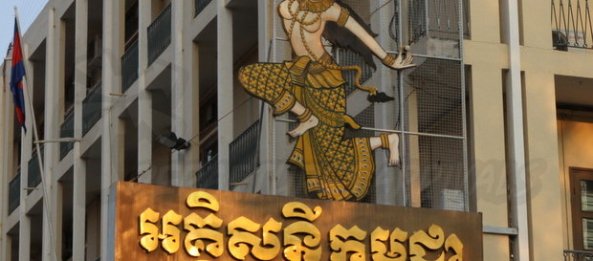A handful of US-based energy firms have met with the government over the past week to discuss plans for two large-scale power-generation projects worth a total of $900 million.
According to the Ministry of Commerce’s official Facebook page, representatives from US renewable energy firms Willowbrook Company and Sun Edison met with Commerce Minister Sun Chanthol on August 20 to present plans for a 200-megawatt solar power plant valued at $400 million.
“If approved, the project is scheduled to commence in 2015 and is expected to be completed by the end of 2017,” the statement said, adding that the firms would need to negotiate and sign an agreement with Electricite du Cambodge before getting the go-ahead.
“Once built and operational, the estimated year-one output for this fully operational plant will be 394 million kWh,” the statement said.
“This 500-hectare solar power plant in Cambodia is uniquely the first of its kind in renewable energy investment in Cambodia and Asia.”
On August 22, two days after the initial meeting, Chanthol met with representatives from US power-generation companies Beowulf Energy and Colorado Energy Management.
According to a second statement from the ministry, Beowulf is currently “evaluating the possibility” of investing $500 million into the construction of an oil refinery in the Kingdom.
“Beowulf is the second US company that visited Cambodia after the reverse trade mission to the US in June 2014 organized by the US Ambassador and attended by Minister Sun and businessmen from Cambodia,” the statement said.
Chanthol is reported to have approved in principle both projects and will consider giving the firms the green light upon the Council for Development of Cambodia (CDC) receiving an official investment proposal.
A spokesman for the Commerce Ministry could not provide further details, and CDC spokesman Chea Vuthy said he was only aware of the US firms’ presence and had not yet held formal talks with them regarding their plans.
“I know they have spoken with Mr Chanthol only and I do not know the details of their discussions. We have not received any formal documents from them for the proposals,” Vuthy said.
Meng Saktheara, secretary of state at the Ministry of Mines and Energy, told the Post that he expected to meet with representatives of Beowulf in the coming days.
“We have meetings planned, so we hope they show the same amount of interest with us as they did with Mr Chanthol. But we do not know more details. We will wait and see,” Saktheara said.
“Energy is a long-term project and requires a lot of preparation . . . US business needs to find and secure their place in Cambodia’s future energy development too.
“What we want is a quality and responsible investment. Cambodia is looking for a long-term partner rather than opportunistic [companies]. We are not in a hurry, we are scrutinising quality of investments.”
Source: Phnom Penh Post | August 26, 2014 | By: Eddie Morton

